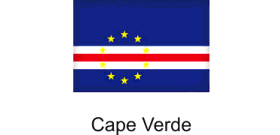 Cabo Verde Champions Rural and Nature Tourism as Cornerstones for Sustainable Growth
Cabo Verde Champions Rural and Nature Tourism as Cornerstones for Sustainable Growth
Cabo Verde is charting a bold new course for its tourism sector, placing rural and nature tourism at the heart of its national development strategy. At the recent 3rd International Conference on Rural and Nature Tourism on Santiago Island, the country’s Minister of Tourism and Transport, Dr. José Luís Sá Nogueira, outlined a vision that moves beyond the traditional sun-and-sea model, aiming to decentralize tourism and ensure its benefits reach every corner of the archipelago.
Building on the momentum of previous conferences in São Antão and São Nicolau, this year’s gathering reaffirmed the government’s commitment to territorial decentralization. Dr. Sá Nogueira emphasized that the new approach is about bringing tourism closer to local communities, generating direct impact through job creation and increased income, while also safeguarding Cabo Verde’s rich material and immaterial heritage. “We are bringing to islands with low incidence in the Sun and Beach segment a form of tourism closer to communities, one that produces direct impact, always with the backdrop of job creation and higher income, while valuing and preserving both material and immaterial assets,” he stated.
Central to this transformation is the Operational Tourism Program (POT 2022–2026), which serves as the guiding framework for implementation. Under POT, the government has mobilized approximately 4.7 million contos for targeted investments in rural and nature tourism across Santiago, Santo Antão, São Nicolau, Fogo, and Brava. By the first half of this year, more than 1.5 million contos had already been executed in the nature tourism segment, supporting projects that enhance accessibility, upgrade port infrastructure, and drive urban requalification—critical enablers for sustainable tourism product development.
The Santiago conference, held in conjunction with World Tourism Day on September 27, brought together government officials, private sector operators, development partners, and international guests. The agenda featured interactive sessions focused on sharing best practices and exploring the operational realities of developing rural and nature-based tourism. Key themes included the evolution of tourism on Santiago, integrating sustainability and heritage within a circular economy framework, managing tourism in protected areas, designing new routes, and promoting adventure tourism through hiking trails.
Dr. Sá Nogueira was clear that these discussions are rooted in practical action, not theory. “They are about aligning conservation with livelihood creation, ensuring that our natural and cultural resources generate value for communities while remaining preserved for future generations,” he explained. This approach seeks to balance economic growth with environmental stewardship, ensuring that tourism development does not come at the expense of Cabo Verde’s unique landscapes and traditions.
One of the longstanding challenges facing Cabo Verde’s tourism sector has been mobility across the islands. Recognizing this, Dr. Sá Nogueira highlighted the recent establishment of Linhas Aéreas de Cabo Verde, a new domestic airline created with a public service obligation to guarantee inter-island connectivity. “Against all the difficulties inherent to the aviation industry, aggravated by the impact of Covid-19, the Government launched a new company specifically to respond to the growing demand of tourism and our Diaspora,” he said. The arrival of the first two ATR aircraft marks a new era in mobility, which is seen as crucial for economic development and reducing regional disparities.
The conference’s alignment with the 2025 World Tourism Day theme—Transformation and Sustainability of Tourism—underscored the sector’s potential to drive not only economic growth but also climate action and resilience. Dr. Sá Nogueira reminded participants that tourism offers opportunities for balanced, inclusive, and people-centered development, fully aligned with the Sustainable Development Goals. “It allows us to accelerate climate action and provide greater sustainability to the planet,” he noted, highlighting the sector’s role in building a more resilient future for Cabo Verde and its communities.
For investors and operators, the message from Cabo Verde is clear: the policy framework is robust, resources are being mobilized, and connectivity is improving. The government’s proactive stance is designed to attract investment and foster partnerships that will help diversify the tourism offering, particularly on islands less dependent on traditional beach tourism. For policymakers and community leaders, the challenge now is to ensure that the benefits of this new approach are felt at the grassroots level, empowering local populations and preserving the unique character of each island.
As the conference concluded, Dr. Sá Nogueira reflected on the significance of the event: “The conference on Santiago represents the highlight of a vast programme that not only celebrates World Tourism Day but also advances our vision of positioning Cape Verde as a global destination for sustainable, inclusive, and diversified tourism.”
For Africa’s travel sector, Cabo Verde’s evolving strategy offers valuable lessons in leveraging tourism for broad-based development. By prioritizing rural and nature tourism, investing in infrastructure, and strengthening inter-island connectivity, Cabo Verde is setting a benchmark for how small island nations can harness tourism as a force for positive change—one that benefits both people and planet.
